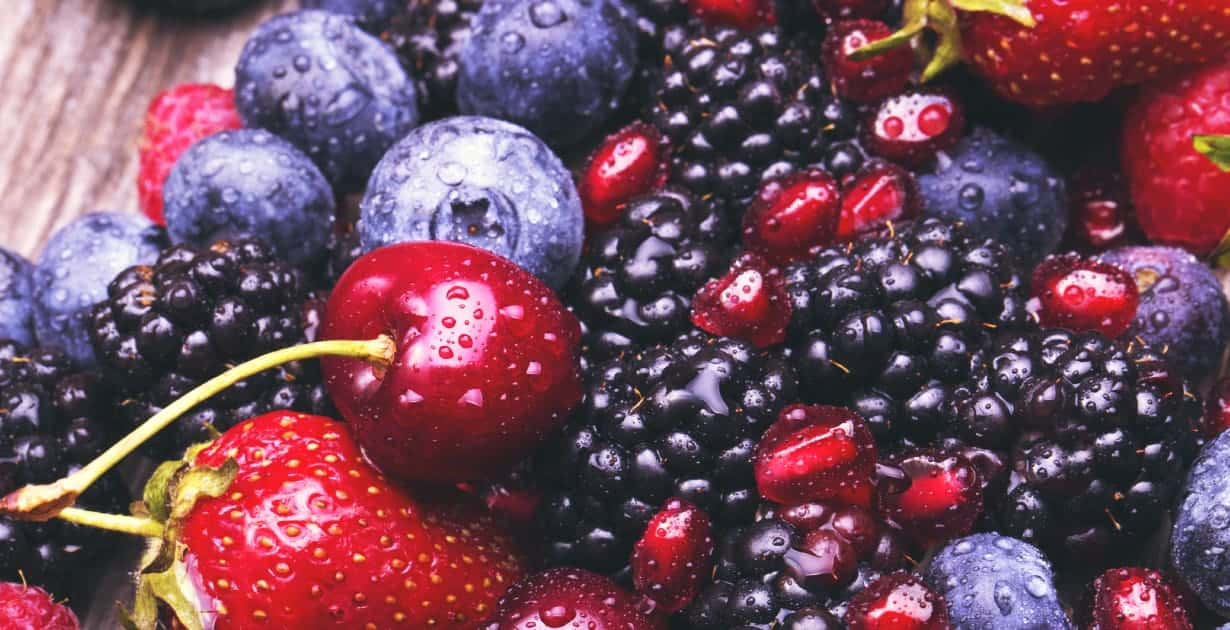Black beans and the things to know
Black beans and the things to know
Black beans are a food source of energy, protein, dietary fiber, various vitamins and minerals. Black beans are also rich in antioxidants, which can protect the cells in your body and reduce your risk of conditions like heart disease and cancer.
Black beans have health benefits such as healthy bones, lower blood pressure, control diabetes, reduce risk of heart disease, prevent cancer, help maintain good digestive system, lose weight, enhance ability fertility, good for pregnancy, good for the nervous system, contains high antioxidants, supports the treatment of anemia.
Black beans are native to the Americas, but have been introduced around the world. Black beans are also known as turtle beans because of the hard shell-like appearance. Black beans are prized for their high protein and fiber content. In addition to protein and fiber, blackhead also contains many other important vitamins and minerals beneficial to human health, while the amount of fat and sugar is minimal.
Black beans are popular among vegetarians because when they are combined with brown rice, they form a complete protein meal. A common problem in vegetarian diets is getting the right amount of protein, so black beans and brown rice can be a simple and inexpensive solution.
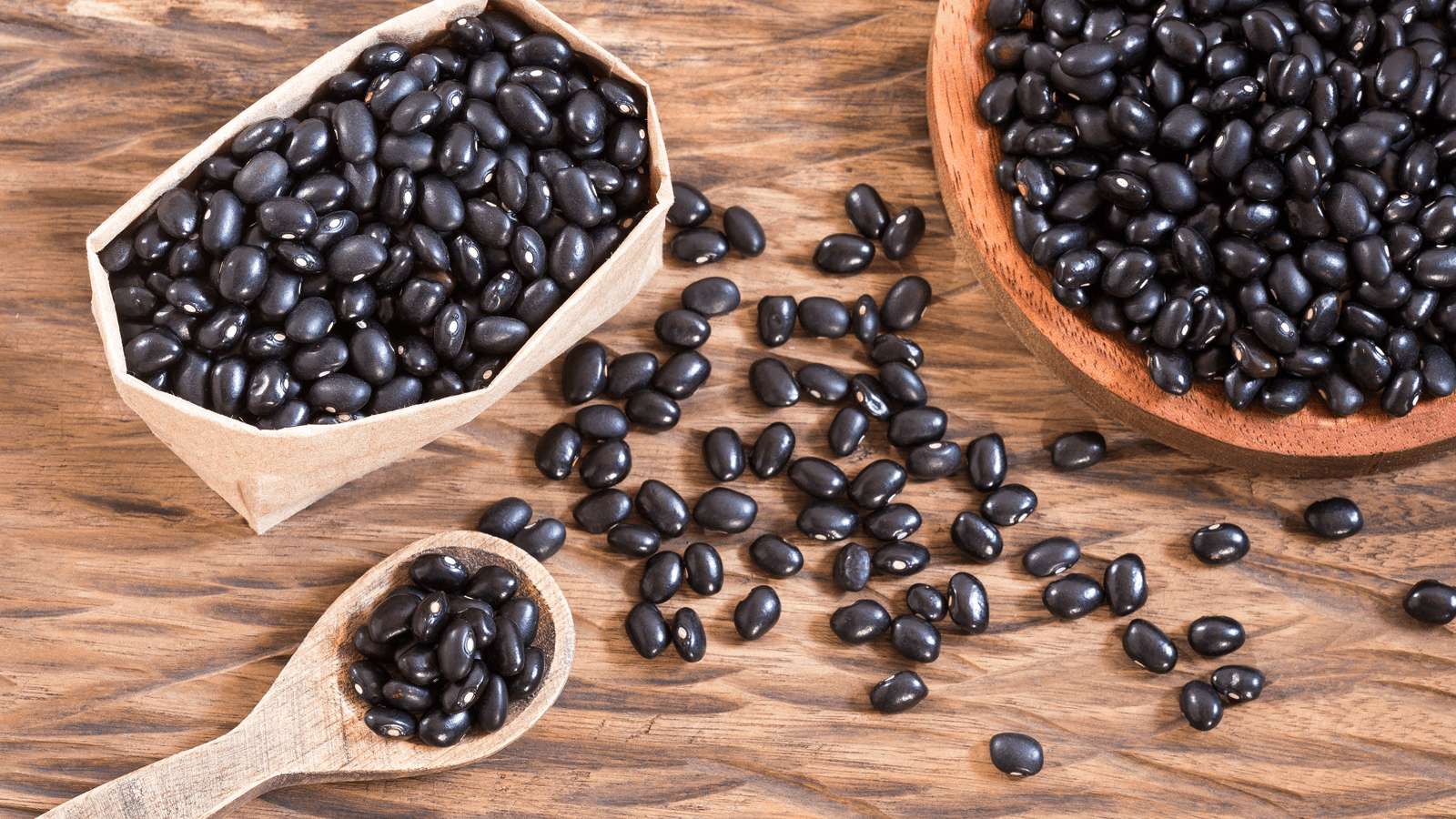
NUTRITION OF BLACK BEANS
According to the National Nutrient Database, one-half cup-86g of cooked black beans contains approximately: Energy: 114kilocalories, Protein: 7.62g, Fat: 0.46g, Carbohydrate: 20.39g, Fiber: 7.5g, Sugars: 0.28g, Calcium: 23mg, Iron: 1.81mg, Magnesium: 60mg, Phosphorus: 120mg, Potassium: 305mg, Sodium: 1mg, Zinc: 0.96mg, Thiamin: 0.21mg, Niacin: 0.434mg, Folate: 128msg, Vitamin K: 2.8mg.
Black beans offer a variety of phytonutrients like saponins, anthocyanins, kaempferol, quercetin, all of which possess antioxidant properties.
As with many beans and legumes, black beans contain starch, a form of complex carbohydrate. Starch acts as a “slow burn” energy store that is slowly digested by the body, preventing a spike in blood sugar levels.

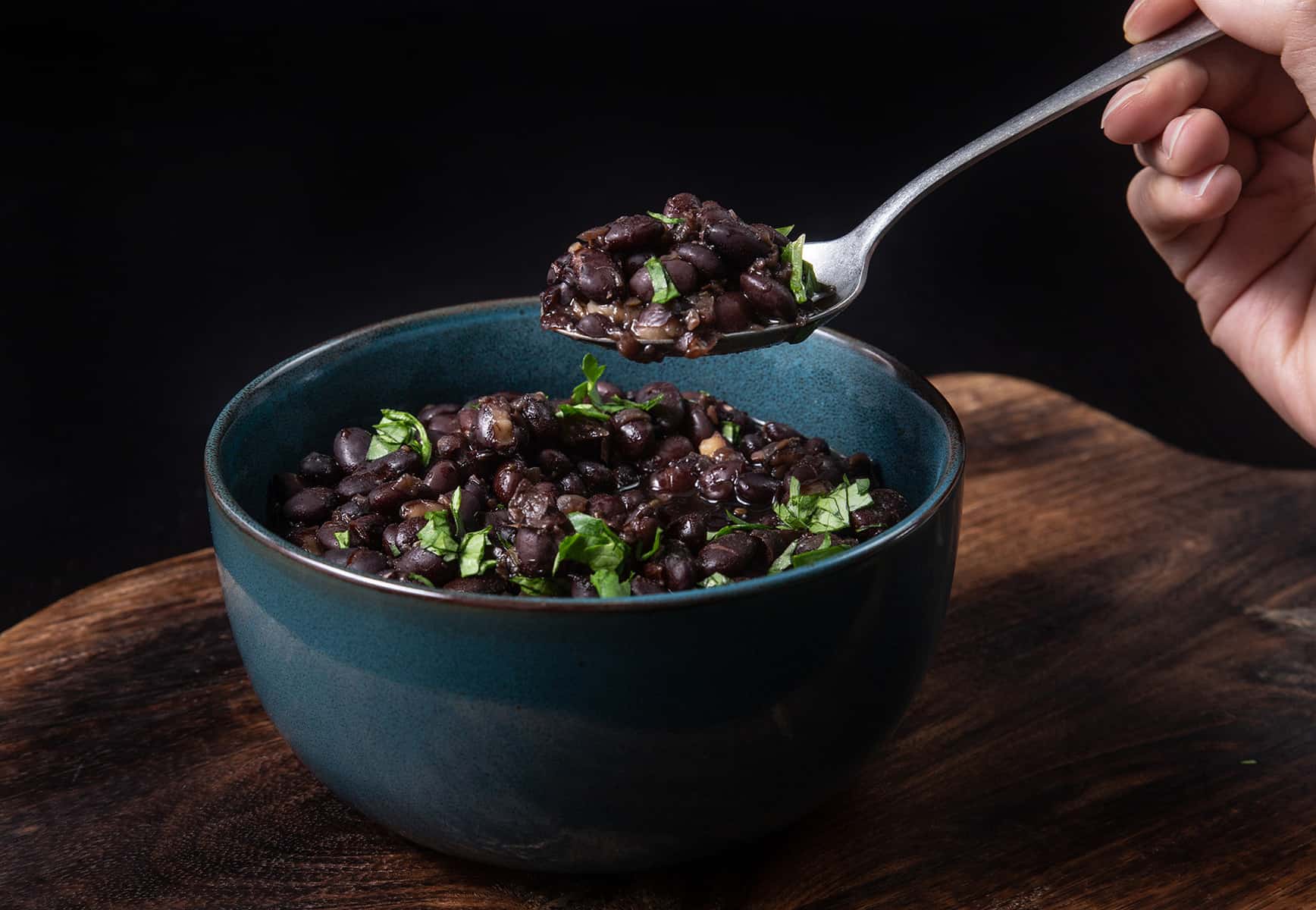
CHOOSE BEANS FOR MEALS
Black beans are available all year round and are easy to find in all markets and supermarkets. Due to it has a dense, almost meat texture, so black beans become a popular source of protein in vegetarian dishes.
If you're using canned black beans, be sure to choose one with no added sodium and drain, rinse well. If you're using dried beans, it's a good idea to soak them in water for at least 8 to 10 hours before cooking for optimal flavor and texture.
You should know that black beans after soaking are easy to peel. Soaking dried beans reduces cooking time and also eliminates some of the oligosaccharides that cause gastrointestinal distress. Soaking beans for a longer time can help reduce phytates, which reduce mineral absorption.
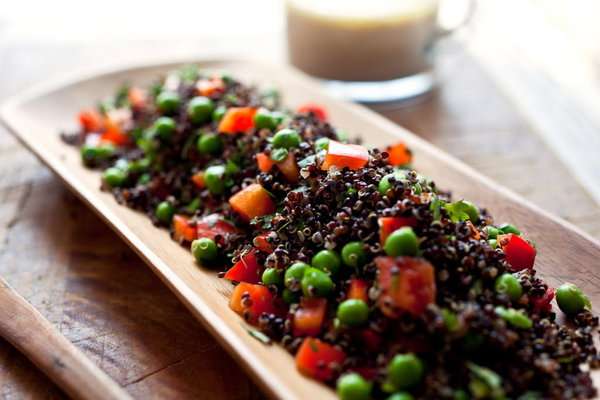

THE HEALTH BENEFITS FROM BLACK BEAN
Maintaining healthy bones
Bones and joints are important organ in human body. Consuming black beans may be a very good investment for maintaining strong and healthy bones, especially in the elderly.
Black beans are high in protein and fiber. The iron, phosphorus, calcium, magnesium, manganese, copper, and zinc in black beans all contribute to building and maintaining bone structure and strength.
Calcium and phosphorus are important in bone structure, while iron and zinc play crucial roles in maintaining the strength and elasticity of bones and joints.
Roughly 99 percent of the body’s calcium supply, 60 percent of its magnesium, and 80 percent of its phosphorus stores are contained in bone. This means it is extremely important to get enough of these nutrients from the diet.

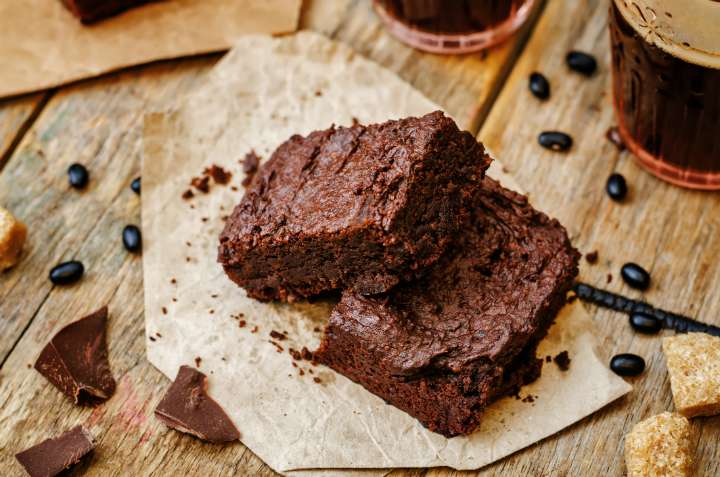
Improve Heart Health
One of the best benefits of adding black beans to your daily or weekly diet is the possibly high levels of fiber that they contain. They have high concentrations of soluble fiber, which has been proven to help lower blood cholesterol levels. Soluble fiber can attract water and turns into a gel during digestion, whereas insoluble fiber adds mass to food and helps it pass through the digestive system faster. Lowering blood cholesterol can reduce the thickening of the artery walls, which in turn can prevent heart attacks and strokes.
Black beans also have small amounts of omega-3 fatty acids, which are good forms of cholesterol that balance the negative effects of omega-6 fatty acids, which are the bad form of cholesterol. They have anti-hypertensive effects, which means that they can improve blood flow, lower blood pressure, and put less strain or oxidative stress on the cardiovascular system.
And more, Black beans are rich potassium, calcium, and magnesium and contain naturally low in sodium , all of which have been found to decrease blood pressure naturally.
Potassium binds sodium in our body and removes it away from the body system so it assists in controlling the blood pressure. But, if you use canned black beans, you should make sure to separate the black beans and rinse it cleanly to reduce the sodium content contained in canned black beans.
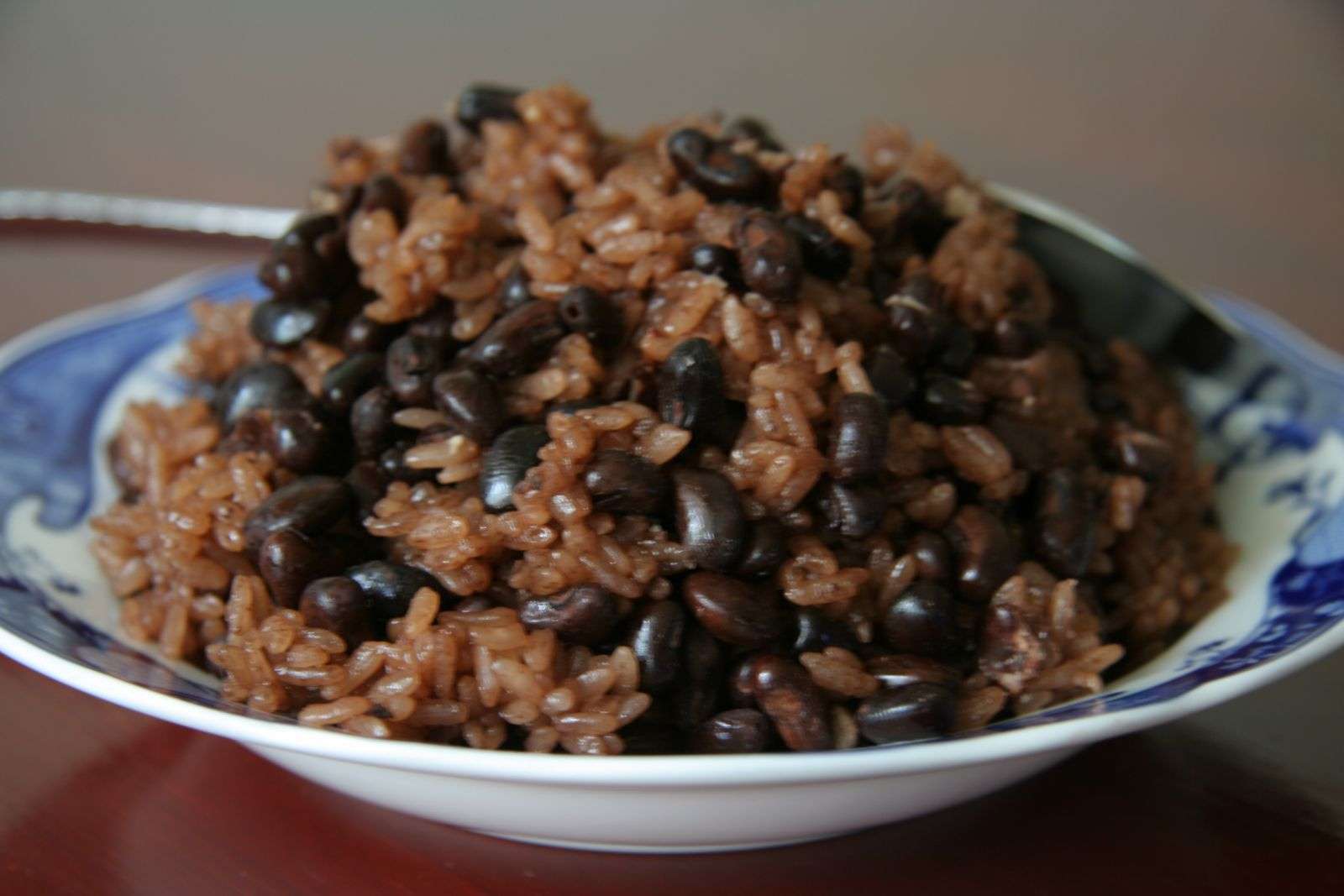
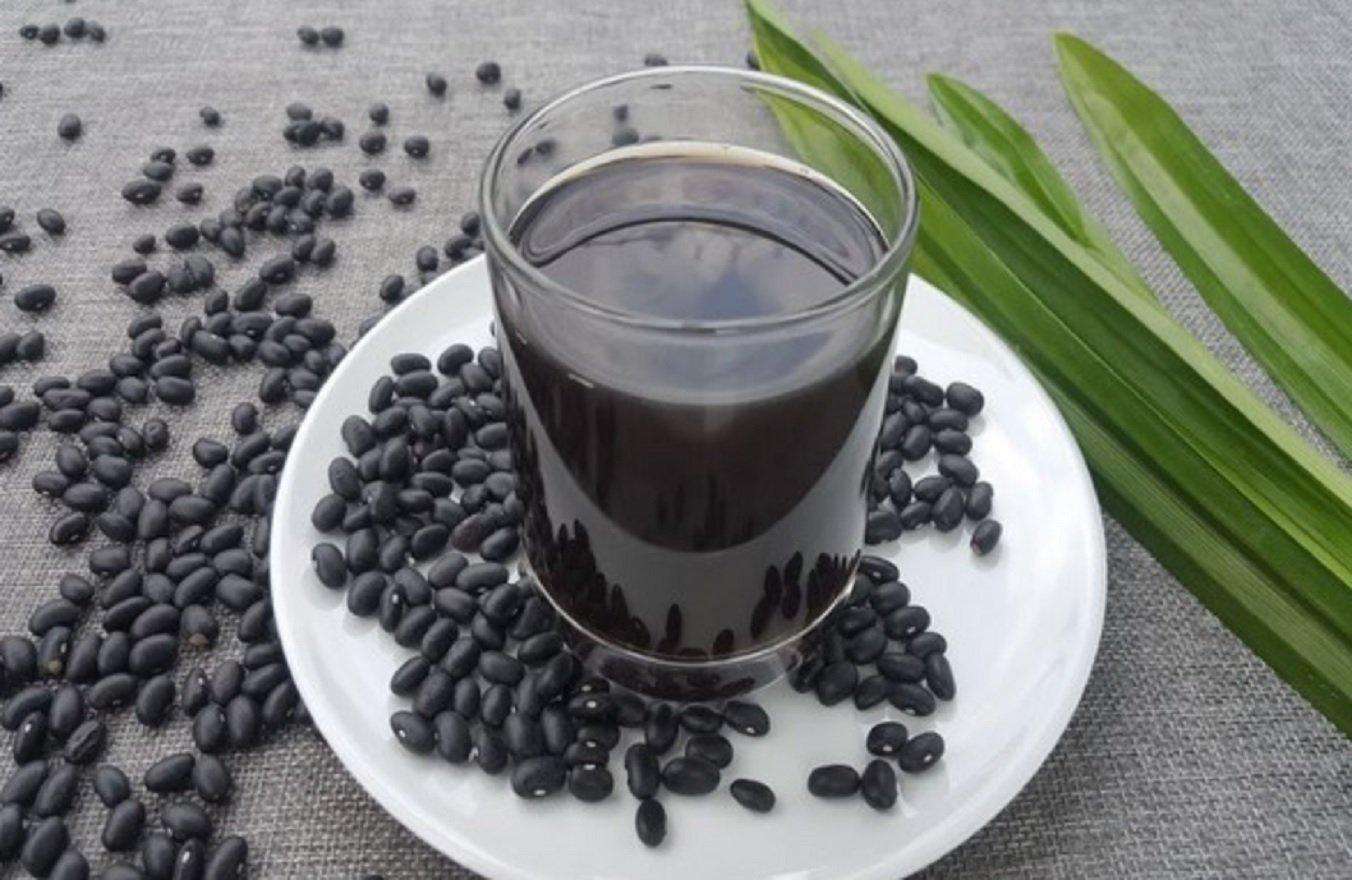
Helps in cure of Anaemia
Due to black beans are so rich in minerals especially in iron of course it is good for fighting against anaemia. As a result of iron deficiency, the body easily gets tired, fatigue and then ultimately leads to anaemia. Consumption of black beans could help in dealing with these problems easily and effectively because black beans is rich in iron and some other important minerals which are essential for the production of red blood cells.
Helps in controlling diabetes
Fibre contained in black beans is essential for those who are currently suffering from Diabetes type 1 and type 2. In type 1, fibre contained in black beans will assist in lowering the blood sugar level while in type 2 it will assist in increasing the insulin and improve the insulin tolerance.
Besides that the current digestive system also has important role in affecting the blood sugar level, unhealthy or unsteady digestive system could cause the unstable blood sugar level and the same fibre substance is also prominent in flowing our digestive system at a steady rate, so that all nutrients be absorbed optimally and reduce the chance of any nutrient uptake.
Furthermore, healthy digestive will improve the liver function as well and if liver is functioning optimally then removal of excess sugar in the blood could be done at ease. One more thing why black beans are good for diabetic patients is that the healthy or simple carbohydrate that is contained in it is safe for the blood sugar level.

May Help Relieve Digestive Issues
Black beans are great for relieving digestive issues because they contain possibly high levels of protein and fiber, making them a “superfood”. Protein and fiber help food move through the digestive tract, allowing it to eliminate waste in a healthy way. They are also digested slower than meat, which has a similar protein content, so eating beans can leave you satisfied for longer.
Black beans are also smaller in size than other beans, because of which people find them easier to digest. Over time, with the regular addition of black beans to the diet, the soluble fiber content will absorb water into your stool, which can reduce constipation.
May Boost Nervous System
Black beans can also improve the functioning of the nervous system by helping provide the necessary amino acids and molybdenum. They contain high amounts of vitamin B9 or folate. Folate, also known as folic acid, plays a key part in the regulation of specific amino acids required by the nervous system. Amino acid is the essential substance required by the nervous system, without which it could have increased the risk of Parkinson disease and in worst condition could cause disease like Alzheimer’s.
Preventing cancer
Black beans have Selenium is a mineral that is not present in most fruits and vegetables but can be found in black beans. It plays a role in liver enzyme function and helps detoxify some cancer-causing compounds in the body. Additionally, selenium may prevent inflammation and decreases tumor growth rates.
Black beans contain Saponins, which prevent cancer cells from multiplying and spreading throughout the body.
And Fiber intakes from fruits and vegetables like black beans are associated with a lowered risk of colorectal cancer.
Black beans are high in folate, which plays a role in DNA synthesis and repair, thus preventing the formationTrusted Source of cancer cells from mutations in the DNA.
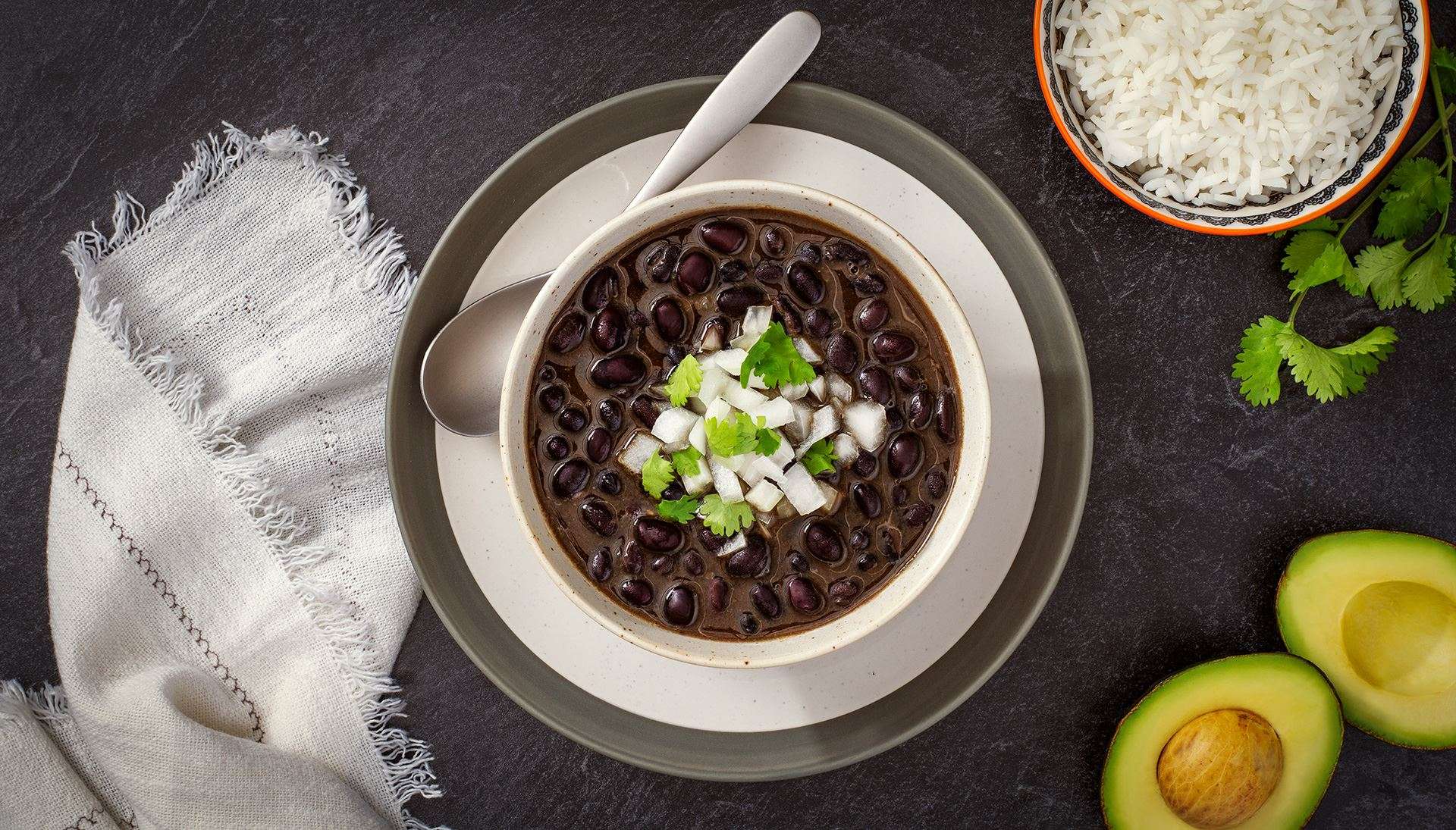
Weight loss
A healthy eating requires food rich in fibre, healthy carbohydrate, relatively high protein and low in fats. Fortunately, black beans are rich fibre, containing relatively high amount of plant based protein, simple carbohydrates and of course very low in fats.
Fibre has a prominent role in optimizing the digestive system to make sure that all nutrients are absorbed optimally and will make a person feel full longer because the moving of beans within the digestive tract is as slow as meat and it can reduce the food craving.
The healthy or simple carbohydrate will provide the person with energy he/she needs without endangering their body’s shape. Plant based protein is essential for metabolism because if in a weight loss program, a person is no longer able to depend on protein obtained from meat, and as a low fat diet of course black beans is a good option.

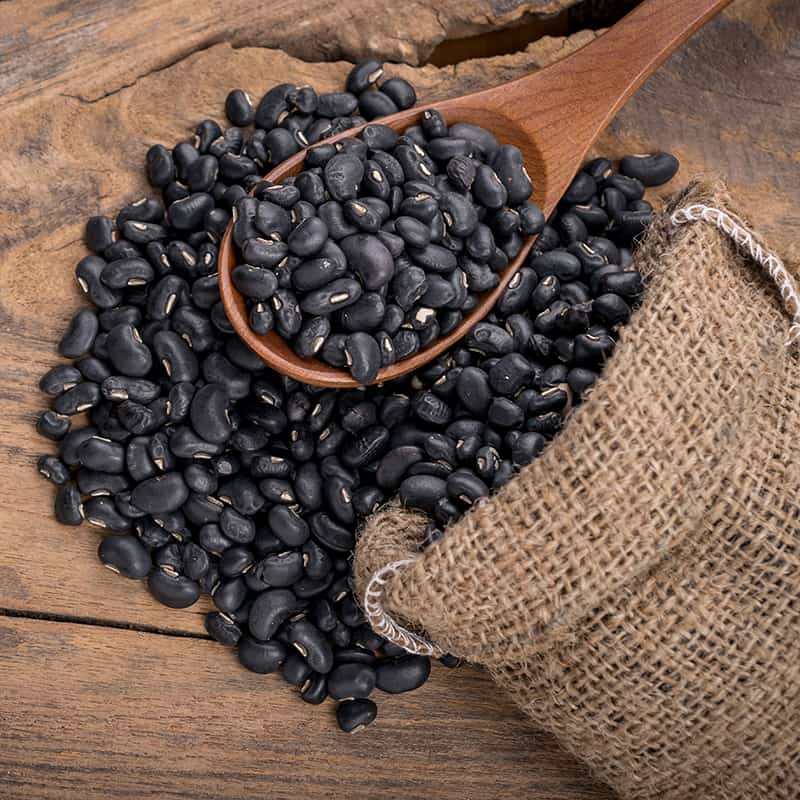
SIDE EFFECTS OF BLACK BEANS
Phytic Acid
Beans have natural seed coats that protect their nutritious contents from predators and insects while growing in nature. One of the components of that seed coat is phytic acid, which protects the seed from premature germination. If the phytic acid is not removed from the bean before eating, it can bind to common minerals like calcium, magnesium, and copper, preventing them from being absorbed as nutrients in the body. These unabsorbed minerals can build up and cause different conditions, from small irritations like digestive irritability to more serious issues like hormonal disruption and impaired brain function. Basically, cook your beans, and make sure they are soaked in water to neutralize the harmful effects of phytic acid.
Oligosaccharides
Black beans contain a complex sugar called oligosaccharides, and the human body does not produce any enzyme that would naturally break that sugar down. Therefore, oligosaccharides ferment in the digestive system and begin to produce methane, which is released from the body in unpleasant ways. So when you do use it, make sure to soak the beans in water and make sure they're cooked. This can greatly reduce a number of oligosaccharides in the beans, along with reducing all of the other organic parts of beans that are difficult to digest.
Compiled and penned by Crocus Media
Products

Desiccated Coconut
Desiccated coconut is mainly used as an ingredient in confectionery and bakery industry. It’s used in making cookies, cakes, pastries, desserts, puddings, or any other coconut based recipes.


